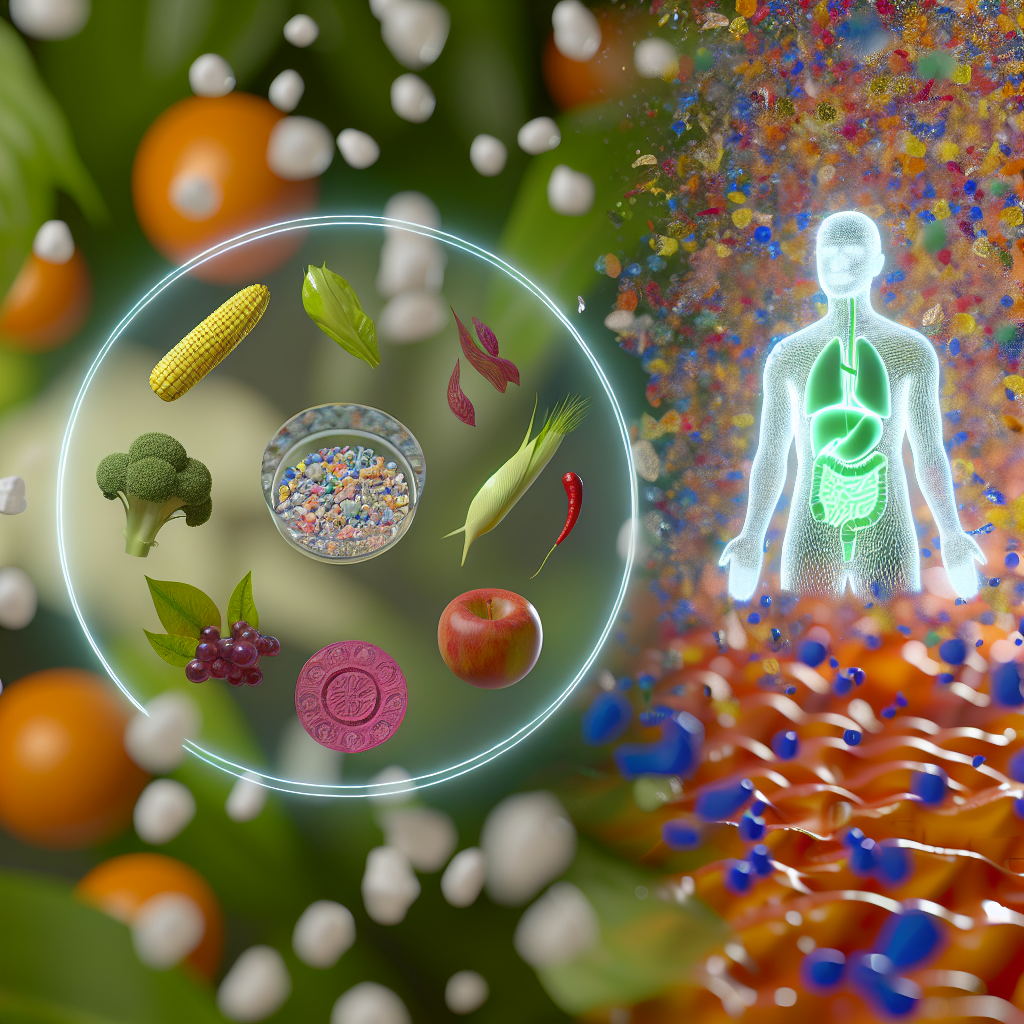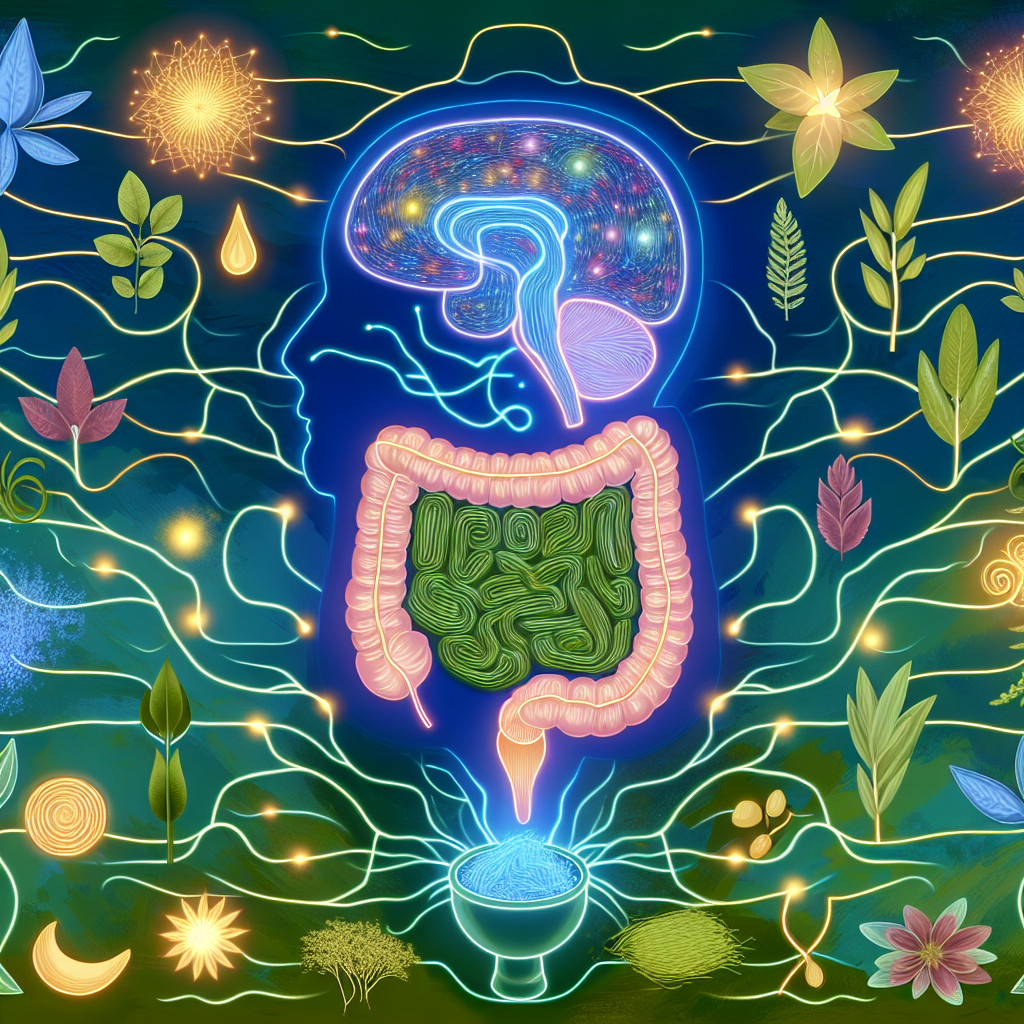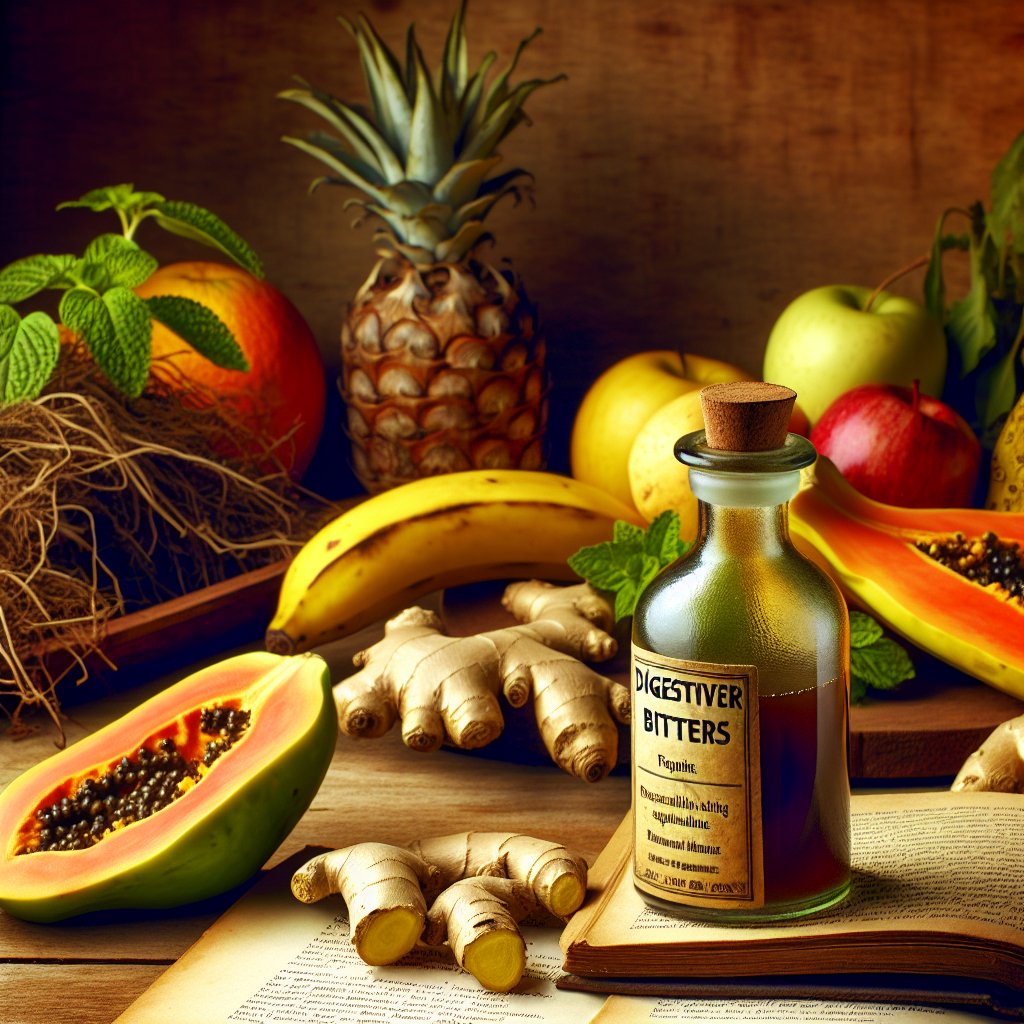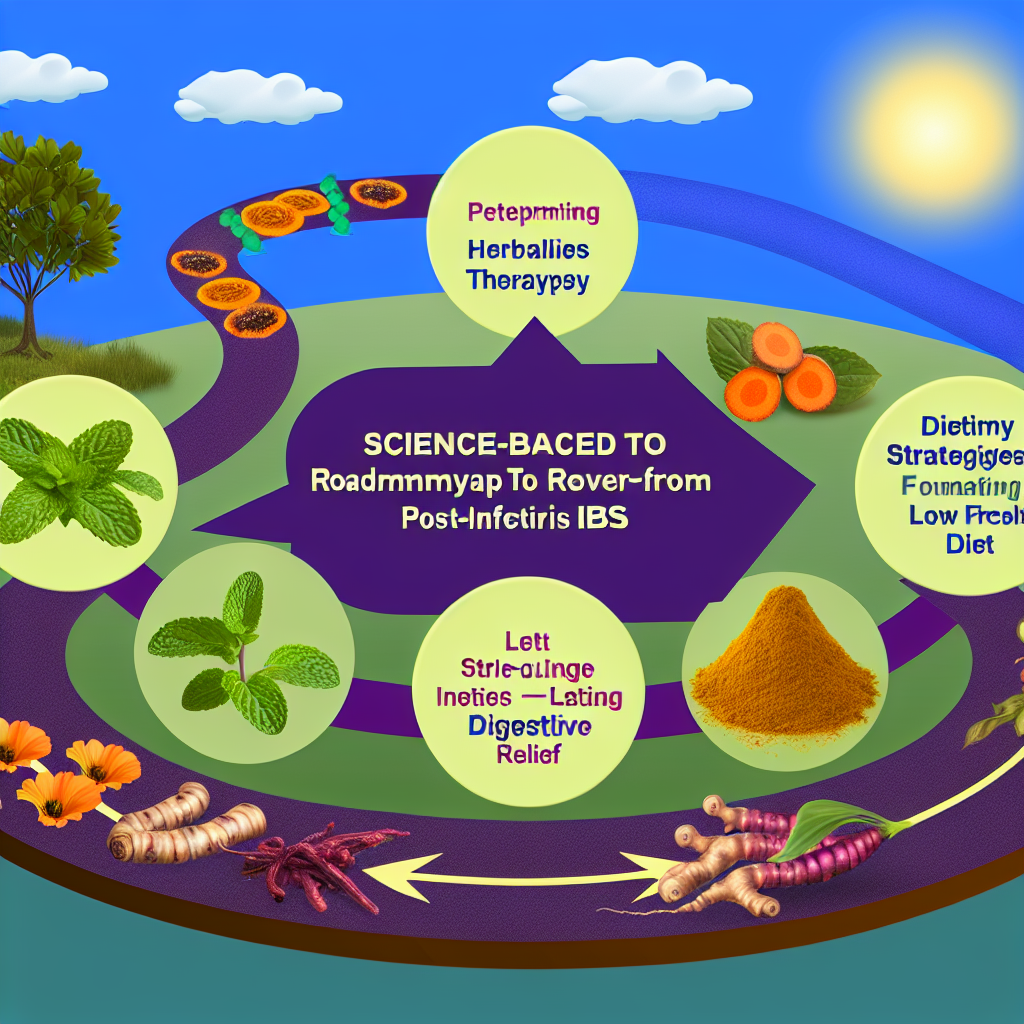Microplastics and Gut Health: Minimizing Exposure and Supporting Detoxification
Introduction
Microplastics—tiny plastic particles less than 5 millimeters in size—have become an alarming environmental and health concern. These particles, originating from degraded plastic waste, synthetic clothing fibers, food packaging, and even personal care products, are now found almost everywhere: in the air we breathe, the water we drink, and, significantly, the food we consume. Over recent years, research has increasingly shown that microplastics can accumulate in the human body, with the gastrointestinal (GI) tract being one of the primary areas of concern. This raises urgent questions about the impact of microplastics on gut health and what natural strategies can help reduce exposure and promote detoxification.
Gut health is intimately connected with numerous body systems and functions. It plays a significant role in regulating immunity, metabolism, hormones, and even mental well-being. An imbalanced gut microbiome—a condition known as dysbiosis—has been linked to chronic issues such as leaky gut syndrome, irritable bowel syndrome (IBS), food intolerances, and autoimmune diseases. The intrusion of foreign synthetic particles like microplastics into this sensitive ecosystem may exacerbate, or even cause, these gastrointestinal issues.
Initial findings suggest that microplastics can influence gut bacteria diversity, foster inflammation, disrupt intestinal lining integrity, and stimulate the release of harmful chemicals such as bisphenol A (BPA) and phthalates. These endocrine-disrupting compounds are known for interfering with hormone regulation and increasing oxidative stress—both detrimental to gut and general health.
While there’s no way to entirely avoid microplastic exposure in modern life, individuals can take practical and holistic steps to minimize their intake and support the body’s natural detoxification systems. This article highlights the most recent scientific studies related to microplastics and gut health, and explores natural remedies, herbal treatments, and lifestyle changes that promote a healthier, more resilient digestive system.
How Microplastics Disrupt Gut Health: Scientific Findings
Emerging research from the field of environmental medicine and microbiology sheds new light on how microplastics adversely affect the gastrointestinal system. A key study published in the journal Environmental Science & Technology in 2020 demonstrated that microplastics can cause significant shifts in gut microbiota composition in mammals, particularly through increased levels of Firmicutes and decreased levels of Bacteroidetes. This imbalance has been linked to increased inflammation and metabolic disorders.
Animal studies have further confirmed the impact that long-term microplastic ingestion has on gut tissue. A 2021 study in the journal Particle and Fibre Toxicology showed that rodents exposed to microplastics over eight weeks developed marked intestinal inflammation, impaired nutrient absorption, and elevated oxidative stress markers. These changes were associated with leaky gut syndrome, where the intestinal lining becomes permeable and allows endotoxins and undigested food particles to enter the bloodstream—triggering widespread inflammation.
Moreover, the cumulative effect of microplastics appears to impair antioxidant defense systems in the gut. A publication in the journal Nanotoxicology (2019) found that microplastic exposure decreases glutathione and superoxide dismutase levels in intestinal tissues—two crucial antioxidants for managing free radical damage.
In terms of human studies, research is still in its nascent stages, but early findings are concerning. A 2021 investigation from Italy published in Environmental International identified microplastic particles in the stool samples of several human volunteers, confirming human ingestion and partial retention. Though the long-term health implications are under ongoing investigation, the initial evidence points to the potential for chronic inflammatory responses and endocrine disruption.
Another critical angle involves the chemicals attached to or leaching from microplastics. For example, bisphenol A (BPA), a component of many plastics, has been shown to alter gut microbial communities and increase intestinal permeability. An article in the journal Gut Microbes in 2019 underscored that BPA disrupts tight junction proteins in the gut lining, further implicating microplastic-related chemicals in gut barrier degradation.
Natural Ways to Limit Microplastic Exposure and Strengthen Gut Health
While the omnipresence of microplastics might seem daunting, several practical and natural approaches can reduce exposure and support gut health:
1. Choose Whole Foods Over Processed
Heavily processed and packaged foods often contain higher levels of microplastic contamination. Opting for whole, organic produce reduces plastic ingestion risks and adds valuable fiber for gut microbiota nourishment.
2. Ditch Plastic Containers and Utensils
Switch to glass, stainless steel, or ceramic storage containers. Heat, especially in microwaves and dishwashers, accelerates plastic breakdown and leaches harmful compounds.
3. Use Detoxifying Herbs
– Milk Thistle: Supports liver detoxification, helping eliminate synthetic chemicals and plastic-related toxins.
– Dandelion Root: Promotes bile flow and gut microbial balance.
– Schisandra Berry: A potent adaptogen that enhances the body’s antioxidant defenses and supports liver function.
4. Focus on Gut-Healing Superfoods
– Fermented Foods: Kimchi, sauerkraut, kefir, and miso repopulate gut flora and reduce inflammation.
– Bone Broth & L-glutamine: Both are vital for repairing the intestinal lining and helping reverse leaky gut symptoms.
5. Drink Filtered Water
Many bottled waters are contaminated with microplastics. Install a high-quality filtration system that eliminates particles down to the micron level.
6. Amp Up Your Antioxidant Intake
Foods rich in polyphenols—such as berries, green tea, cacao, and dark leafy greens—neutralize free radicals and reduce oxidative damage from plastic-related toxins.
Conclusion: Take Control of Gut Health in a Plastic-Filled World
The intersection of environmental toxins like microplastics and human gut health is a developing narrative that’s garnering increasing scientific and public health attention. While the pervasive nature of plastic pollution may make complete avoidance difficult, intentionally reducing exposure through lifestyle choices and leveraging natural detoxification strategies can yield meaningful benefits. Empowering the body through whole foods, herbal support, and microbiome reinforcement not only mitigates the impact of microplastics but also promotes a more vibrant and resilient digestive system. As research continues to evolve, individual awareness and proactive wellness choices remain our strongest tools for safeguarding gut health in an increasingly synthetic world.
References
1. Leslie HA, van Velzen MJM, Brandsma SH, et al. (2022). Discovery and quantification of plastic particle pollution in human blood. Environment International. [Link]
2. Lu L, Wan Z, Luo T, et al. (2018). Polystyrene microplastics induce gut microbiota dysbiosis and hepatic lipid metabolism disorder in mice. Science of the Total Environment. [Link]
3. Deng Y, Zhang Y, Lemos B, Ren H. (2017). Tissue accumulation of microplastics in mice and biomarker responses suggest widespread health risks of exposure. Scientific Reports. [Link]
4. Xu M, Halimu G, Zhang Q, et al. (2020). Internalization and toxicity: A review on the potential health effects of microplastics. Journal of Hazardous Materials. [Link]
5. Galloway TS, Lewis CN. (2016). Marine microplastics spell big problems for future generations. Proceedings of the National Academy of Sciences. [Link]
6. Yang D, Shi H, Li L, et al. (2015). Microplastic Pollution in Table Salts from China. Environmental Science & Technology. [Link]
7. Mohammad I, Vishwakarma P, Das NK, et al. (2021). Bisphenol A Disrupts Gut Microbiota and Induces Testicular Inflammation in the Host. Environmental Research. [Link]
Summary:
Microplastics, tiny plastic particles found in the environment, have emerged as a significant health concern due to their potential impact on gut health. Accumulating research indicates that microplastics can disrupt the gut microbiome, foster inflammation, and impair the integrity of the intestinal lining. This can lead to issues like leaky gut syndrome, irritable bowel syndrome, and autoimmune disorders. While complete avoidance of microplastics is challenging, individuals can take proactive steps to minimize exposure, such as choosing whole foods, avoiding plastic containers, using detoxifying herbs, and consuming gut-healing superfoods. By empowering the body’s natural detoxification systems, people can safeguard their gut health and build resilience against the growing problem of plastic pollution.

Dominic E. is a passionate filmmaker navigating the exciting intersection of art and science. By day, he delves into the complexities of the human body as a full-time medical writer, meticulously translating intricate medical concepts into accessible and engaging narratives. By night, he explores the boundless realm of cinematic storytelling, crafting narratives that evoke emotion and challenge perspectives.
Film Student and Full-time Medical Writer for ContentVendor.com




